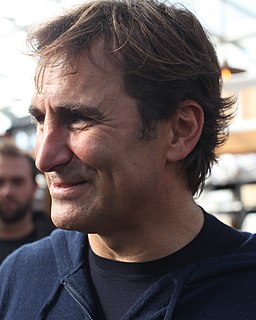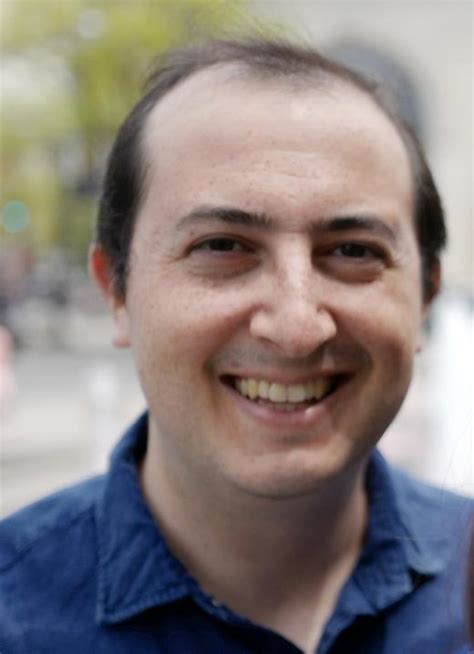A Quote by Neil deGrasse Tyson
You could be a poet, an artist, a comedian - if you're in the culture of innovation then you embrace those who do and you're going to protect the science curriculum in the classroom because you understand the meaning and the value of it. And science discoveries don't scare you. You say, "Give me more science", not less. "Give me more technology", not less.
Related Quotes
Once you have an innovation culture, even those who are not scientists or engineers - poets, actors, journalists - they, as communities, embrace the meaning of what it is to be scientifically literate. They embrace the concept of an innovation culture. They vote in ways that promote it. They don't fight science and they don't fight technology.
If we ought not to fear mortal truth, still less should we dread scientific truth. In the first place it can not conflict with ethics? But if science is feared, it is above all because it can give no happiness? Man, then, can not be happy through science but today he can much less be happy without it.
The triumph of science has been mainly due to its practical utility, and there has been an attempt to divorce this aspect from that of theory, thus making science more and more a technique, and less and less a doctrine as to the nature of the world. The penetration of this point of view to philosophers is very recent.
We are living in a society that is totally dependent on science and high technology, and yet most of us are effectively alienated and excluded from its workings, from the values of science, the methods of science, and the language of science. A good place to start would be for as many of us as possible to begin to understand the decision-making and the basis for those decisions, and to act independently and not be manipulated into thinking one thing or another, but to learn how to think. That's what science does.
Chris Ferguson brought up a really interesting point that I agree with, and he said science is a human endeavor. The more someone tells me that they're absolutely objective, the less I believe they are. So people need to fact-check things. They need to understand that science is easily damaged by politics and personal opinion.
[Science fiction is] that class of prose narrative treating of a situation that could not arise in the world we know, but which is hypothesised on the basis of some innovation in science or technology, or pseudo-science or pseudo-technology, whether human or extra-terrestrial in origin. It is distinguished from pure fantasy by its need to achieve verisimilitude and win the 'willing suspension of disbelief' through scientific plausibility.
Let me tell you how to love all equally. Do not demand anything of those you love. If you make demands, some will give you more and some less. In that case you will love more those who give you more and less those who give you less. Thus your love will not be the same for all. You will not be able to love all impartially.
Oh, that's typical of you modern young men; you've nibbled at science and it's made you ill, because you've not been able to satisfy that old craving for the absolute that you absorbed in your nurseries. You'd like science to give you all the answers at one go, whereas we're only just beginning to understand it, and it'll probably never be anything but an eternal quest. And so you repudiate science, you fall back on religion, and religion won't have you any more. Then you relapse into pessimism...Yes, it's the disease of our age, of the end of the century: you're all inverted Werthers.
I think religion and science operate in different regimes. Religion is a belief system that tries to give meaning and comprehension to peoples' lives. Science is more about the mechanics of the universe around us and the way in which it works. And I don't think those things have to be mutually exclusive.




































